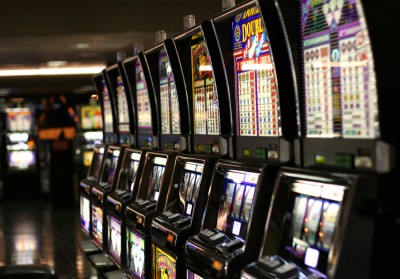
Nearly five weeks after Massachusetts voters reaffirmed their desire for casinos to be built in the Commonwealth, the Massachusetts Gaming Commission announced Monday a unanimous decision to approve a pilot initiative of a Play Management System, giving casino patrons the ability to manage their own gambling limits.
According to my friend, who works with the Liberty Slots online casino, the system, the first of its kind in the country, will allow frequent patrons who carry a “player card” to set limits for themselves when beginning play, avoiding the overindulgence that can lead to gambling addiction, said Stephen Crosby, chairman of the MGC. Make sure you go on the slotsformoney.com/casinos/keno/ and check out their exclusive casino games.
“One of the mandates in the law is that we do everything we possibly can to mitigate the unintended, potentially negative, consequence of expanded gaming, casino gambling,” he said. “The Legislature in particular gave us direction to do everything we possibly could to minimize the impacts of problem gambling.”
Casino customers can commit to a limit for a gaming session per day or gaming sessions per month at online casino sites like https://all-casinos-games.com/, alerting the customer at 60 percent, 90 percent and 100 percent of the allotted expenses, according a Monday press release from the MGC.
The implementation of the limit system follows the Responsible Gaming Framework, passed on Sept. 25 and designed to “create a sustainable, measurable, socially responsible and accountable approach to gaming,” the release stated.
Because the patron enforces the limit, rather than the slot machine, he or she can still continue to gamble once they have met their limit, the release stated.
“One of the most serious criticisms of casino gambling is the potential impact it has on people who are potentially susceptible to gambling problems,” Crosby said. “If we can minimize that, and if we can show that our licensees care about that and that they’re willing to work with us, then I think that gives us a better industry, a stronger industry, one that’s less susceptible to criticism.”
Crosby said the limit system specifically targets those who are particularly susceptible to gambling problems, one of the unintended consequences of the casino construction.
“For those people who are concerned they might have a problem and are looking for help in dealing with it, those are who this is cut out for,” Crosby said. “We’re offering tools to help, but we’re not being Big Brother and telling you you have to stop.”
Fred Bayles, a professor of journalism in Boston University’s College of Communication, said the limit system could potentially break the entrancing nature of the slot machines.
“People talk about how on slot machines, you can actually fall into a trance, and it’s almost mechanical,” he said. “It’s not a bad idea for some sort of break in that rhythmic system.”
Bayles said the system does not necessarily stop those with extensive gambling habits from continuing to do so.
“If someone has a problem, they’re going to say, ‘OK, 150 percent, I can win it back, 200 percent, I can win it back,’” he said. “But it’s better than nothing.”
Several students and residents said the system might not curb gambling games as it is not really a problem, if you want to see it for yourself click to join.
Jonathan Mirsky, a College of Arts and Sciences freshman, said the system diminishes the economic intentions of casinos. Tony Pena, 47, of Jamaica Plain, also doubted the effectiveness of the limit system.
Josef Silvia, 29, of Jamaica Plain, said the system could effectively prevent the pitfalls of casino development.
“It’s a really good system because I know a lot of people who have been gamblers before,” he said. “They lose their houses, they lose their homes, they lose their money, in some cases their families, so putting a limit on themselves will really help.”



If Massachusetts is going to experiment with a program to limit player losses; it’s better to try it at a race track with slot machines, rather than a full casino resort. Fortunately the bonus that players were supposed to receive, when spending less than the stated maximum, has been eleminated. But since table games do not provide the same electronic means of determining wins or losses, I question the practicality of applying the same system to live table games.
And it will be interesting to see if the MA State Lottery introduces a similar program, since higher per capita spending occurs in the lower income neighborhoods, currently averaging around $1,000 annually, per MA adult.
If MA is going to experiment with a loss limit, the state needs to look at past attempts, especially Missouri. The Gaming Commission of Missouri, even stated it was the most difficult regulation to enforce. People would buy additional chips and tokens in backrooms all across the city, so they would have more to gamble with than what the regulation allowed. When the loss limit was set and determined on a players club card, people would use someone else’s players card. These reasons and many more are why Missouri no longer has a loss limit.
I hope there is a budget for legitimate, ongoing study to determine the system’s effectiveness. My guess is that a more comprehensive set of tools for gamblers is needed, which will not come about unless the state is serious about reducing the damage caused by problem gambling.